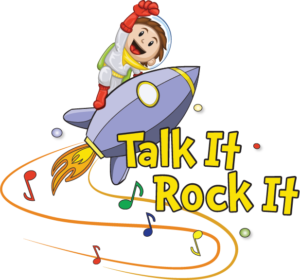
Will my child with apraxia ever talk? I have heard this question so often over the years and understandably so. Parents are heartbroken when their child struggles, and that certainly can include talking. To answer the question, “Will my child with apraxia ever talk,” let’s look at what childhood apraxia of speech is.
What is childhood apraxia of speech (CAS)?
Children with CAS have a motor speech disorder that affects how they plan the movements required for speech. What appears to be an easy task for most kids can be impossible for others.
As a speech-language pathologist (SLP) who worked with very young children, diagnosing apraxia with non-verbal children can be difficult. There can be so many possible reasons why a child cannot produce speech. Apraxia is an infrequently occurring diagnosis. I hesitate attaching the apraxia label, to children who are not yet imitating or who cannot use words to communicate. Apraxia may not be the reason.
There are children, though, who attempt to imitate but struggle to produce vowel combinations, and struggle moving from vowels to consonants and consonants to vowels. This difficulty with sound sequencing makes it very challenging to shape words. Children who grope and struggle moving from sound to sound to produce a normal speech flow may have apraxia.
Childhood Apraxia is a motor planning disorder
A child diagnosed with apraxia has a motor planning disorder. There is a struggle to smoothly move from speech sound to speech sound to produce words and phrases. The sound development and errors do not follow a typical developmental pattern. Children with apraxia often have vowel distortions, have inconsistent errors, and do not have the typical flow of talking. The Mayo Clinic has described CAS in detail. Another organization, Apraxia-Kids, is a good resource for you in learning more about the specific details of apraxia.
In most cases, there is no obvious brain injury when a child has apraxia. Studies have shown that the brain struggles to plan the muscle movements (tongue, lips, jaw) needed to make speech. Because of this difficulty, language delays in using sentences and communicating are also often present.
Will a child with apraxia ever talk, speak normally, or grow out of it?
Please keep in mind that apraxia can be mis-diagnosed at times. There are children who have been given that diagnosis that may, indeed, not have CAS at all. They may have a speech and language disorder that requires speech therapy. They may not, however, show the difficulty sequencing speech sounds to create words that is seen in CAS. Having said that, though, whatever is causing your child’s speech delay, there are many ways to help your child.
Listen to parents
I learned many years ago to listen to parents. The question of, “will a child with apraxia ever talk?” weighs heavily. If you have a concern about your child’s speech, I believe it. If your gut is rumbling, listen to that and get support and suggestions. There are some children who may show spurts in speech and language and eventually show normal speech and language skills. There are other children who have speech and language delays that require consistent speech and language therapy. It is impossible to say that every child will outgrow a speech disorder such as CAS. Children can, though, develop the ability to speak effectively. Early treatment is crucial and focusing on movement from sound to sound to shape words and phrases is essential.
I wish I could take away your worry
I’m sure you worry about the future and wonder whether your child will ever outgrow CAS. I wish I could take that anxiety away from you. As a parent with a child who had leukemia when she was young, my fear was immobilizing at times. But worrying about what may happen never helped me along the journey. That’s easy to say as she is now an adult.
I will suggest, though, to seek help and suggestions, and explore ways to make speech practice FUN. When children have to practice something that is very difficult for them, be creative in how you approach it. I will use my daughter as an example. Her situation was different than a child with CAS, but hey, let’s face it. If a child is hurting or if there is something wrong, a parent’s worry is similar regardless of the diagnosis.
With my daughter, she couldn’t swallow pills. She needed to swallow 8 per day, and we would literally struggle all day with still no pills swallowed. She would vomit liquid meds, so that didn’t work. We discovered that she could swallow jello pieces without chewing, so I made jello-jigglers. We would insert the pills into them. I can honestly say that jello-jigglers saved her life. 😊
Find support and search for activities that are fun and effective
So, whatever “pill” your child needs to swallow, find ways to make it fun. With CAS, frequent speech sound sequencing can be a chore. You can make it fun by combining it with enjoyable activities. Choose vocabulary that is motivating for your child to say. Acknowledge how hard it is and how proud you are of your child for trying. My products can also be helpful to you.
So, the answer to your question of whether your child will ever speak normally is this – I don’t know. I do know that, 10 years from now, you will be so proud of the progress your child has made. You will be amazed at how hard your child has worked, has learned to compensate for weaknesses, and has built on strengths. Focus on those things and not on whether he will grow out of it or have long term issues. That worry will not help you.
Can speech therapy help children with apraxia?
Oh yes, speech therapy can be a huge help for children with apraxia. Speech and language therapy will be helpful. I encourage you to locate a speech-language pathologist (SLP) or speech therapist who can guide you and evaluate your child. An SLP can get to know your child, determine the speech disorder he has, and discover his strengths and needs. A directory at apraxia-kids.org/speech-language-pathologist-directory, may help you find a specialist in the area of childhood apraxia of speech.
I have found that speech therapy focused on a hierarchical approach to motor sequencing is very helpful. Tactile cuing can be very helpful. Therapy approaches including Dynamic Temporal and Tactile Cuing (DTTC) and PROMPT (Prompts for Restructuring Oral Muscular Phonetic Targets can be helpful. Music that focuses on motor sound sequences are a great addition to a therapy program. When talking to experts in the childhood apraxia, many combine tactile cuing with the songs and visuals from Talk It Rock It. In particular, the sets, Imitation Exploration and Drills for Sounds, can be used as an extension to speech therapy.
How can I help my child with apraxia of speech at home?
Your child will benefit from lots of verbal practice. I’m guessing that you have tried many things. Getting a child to practice something that is difficult is often easier said than done. I would start by looking through some of our products including our songs, videos, books, and the Blast Off Board.
For more information about apraxia of speech, please look at additional articles in my blog.


